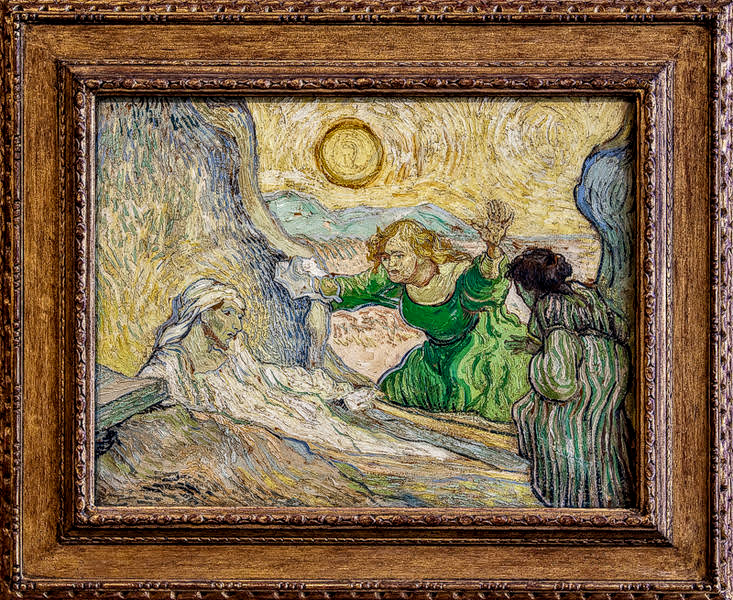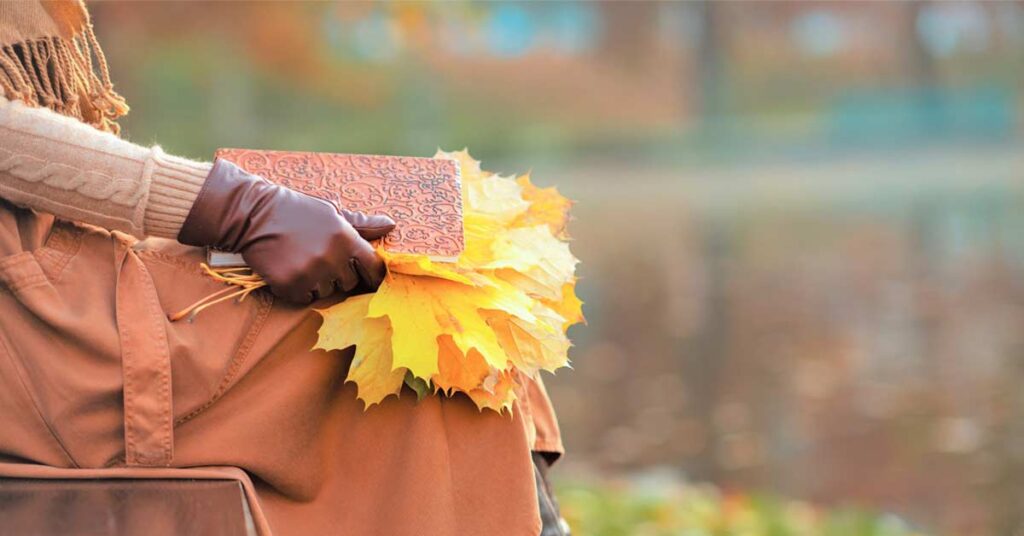Change is in the Air
Days are getting shorter, and the signs of a change of seasons are starting to occur. The new school year is beginning again. Growing up in the desert, I did not always notice the change in seasons, as it was still in the high 100’s in mid-August and September. But there was still always a change, a call to a new stage, a new hope. I love the season of going back to school. Even now, about a decade after leaving school, I love walking through the school supplies sections, seeing young children excitedly picking out new folders and pens. There is an energy in the air, a freshness.
This time of year can act as an inspiration and lesson for all of us. We can allow this “season” to penetrate our daily activities, and transform us from within. Looking at young students, we see that so many have a joyful excitement for what is to come. They have missed their friends and are often excited about learning new things. (This can sometimes later be thwarted, seeing students who dislike school and the work associated, but that is a topic for another time.) Even for teachers, the beginning of the school year is a time of new hope. Classrooms are freshly cleaned; new faces are present to get to know and encounter. They have a new goal, and no contrary experiences to distract or block their vision for the future success of their class. This is a privileged time, a moment of hope.
But how can we cultivate and maintain our hope and joy? How can we increase our awareness during this time, not allowing this season to once again pass into the mundane of ordinary life?

Made for Hope
Man is made for hope. We were created with this yearning, this desire for what is to come. When injustice occurs, we are aware and bothered. When beauty fades, our hearts desire for more lasting moments. Our very being informs us of our call to a supernatural life, a life without end. The Catechism tells us,
“The dignity of man rests above all on the fact that he is called to communion with God. This invitation to converse with God is addressed to man as soon as he comes into being. For if man exists it is because God has created him through love, and through love continues to hold him in existence. He cannot live fully according to truth unless he freely acknowledges that love and entrusts himself to his creator.”
CCC 27
And so this season is an opportunity to “re-remember” this hope we are called to. Not to ignore our present concerns, they are real and a part of our journey. Jesus displays this perfectly in the sickness and death of his friend Lazarus. In John 11, we read,
When Jesus saw her weeping, and the Jews who came with her also weeping, he was deeply moved in spirit and troubled; and he said, “ Where have you laid him?” They said to him, “Lord, come and see.” Jesus wept. So the Jews said, “See how he loved him!”
Jesus did not reject present suffering and difficulty. It is not as if the path to holiness requires ignoring present difficulties in a naïve hope of only the future. Jesus weeps for Lazarus, he is saddened, moved by the suffering of Mary for her brother. But the story does not end here. This story ends with one of the greatest miracles performed by Christ, “The dead man came out, his hands and feet bound with bandages, and his face wrapped with a cloth. Jesus said to them, Unbind him, and let him go.” Lazarus is alive, and he is given an invitation and opportunity for living in hope.

Facing Our Present
In a time of great difficulty in our world—confusion, severe suffering, conflict—it is easy to become distracted by anxiety. We become almost blinded inwardly, focusing our attention and energy on what is difficult and troublesome. As Catholics, we must remember that while we live in this world, we are not made for this world. In his encyclical on Hope, Spe Salvi, Pope Benedict XVI begins saying,
“Redemption is offered to us in the sense that we have been given hope, trustworthy hope, by virtue of which we can face our present: the present, even if it is arduous, can be lived and accepted if it leads towards a goal, if we can be sure of this goal, and if this goal is great enough to justify the effort of the journey.”
Spe Salvi, 1
And what is this goal? Pope Benedict XVI continues on saying,
“Man’s great, true hope which holds firm in spite of all disappointments can only be God—God who has loved us and who continues to love us to the end, until all is accomplished. Whoever is moved by love begins to perceive what life really is.”
Spe Salvi, 27

Living Inspired by Hope
How do we live inspired by this hope? How can we let our lives be transformed by this Love?
- Gratitude. Numerous studies have been conducted showing the correlation between gratitude and greater happiness. Set aside time to cultivate thanksgiving. If you do a daily examination, add a moment of Thanksgiving. If you do not do a daily examen, think about ending your day with three points of gratitude.
- Relationships. We are made in the image and likeness of God, a community of persons. John Paul II’s Theology of the Body reminds us that due to this, we are made for community. Seek friendships. Do not suffer alone, do not live alone. Letter writing is a beautiful way to foster old friendships. Start this new season knowing you have a community of people to support you.
- Prayer. This desire for authentic relationships extends to our relationship with the Lord. In fact, we have a desire for relationships because we were made for relationship with Him! The Incarnation happened because God wanted to be known by us. Christ opened the door to make relationship with God more tangible. Spend time with our Eucharistic Lord. All relationships require giving and receiving. Give the Lord your problems, worries, joys, and make sure to receive as well.
- Gifts and Talents. Part of gratitude is recognizing the specific gifts you’ve been given from the Lord. When we get caught up in what needs to be done, it can lead to focusing on our shortcomings. We each have gifts, and these virtues can be used to help us grow in other areas of our life.
Transformed and Renewed
Guided by this hope, we can transform our oftentimes stagnant ways of thinking and living. As we start this new “season”, I invite you to be transformed by hope: within your families, with your friendships and parish communities, and within your own heart and life.
As a CMF CURO community, we are here to support you as well. If you are looking for ways to get involved, or for being supported on your path to greater hope, please join us for our weekly Bible Studies, Spiritual Direction opportunities, and/or sign up for an introductory health coaching session.
Know we are always praying for our members. We are so grateful to have you a part of our CURO family!


